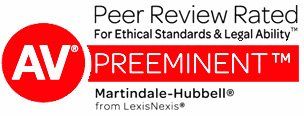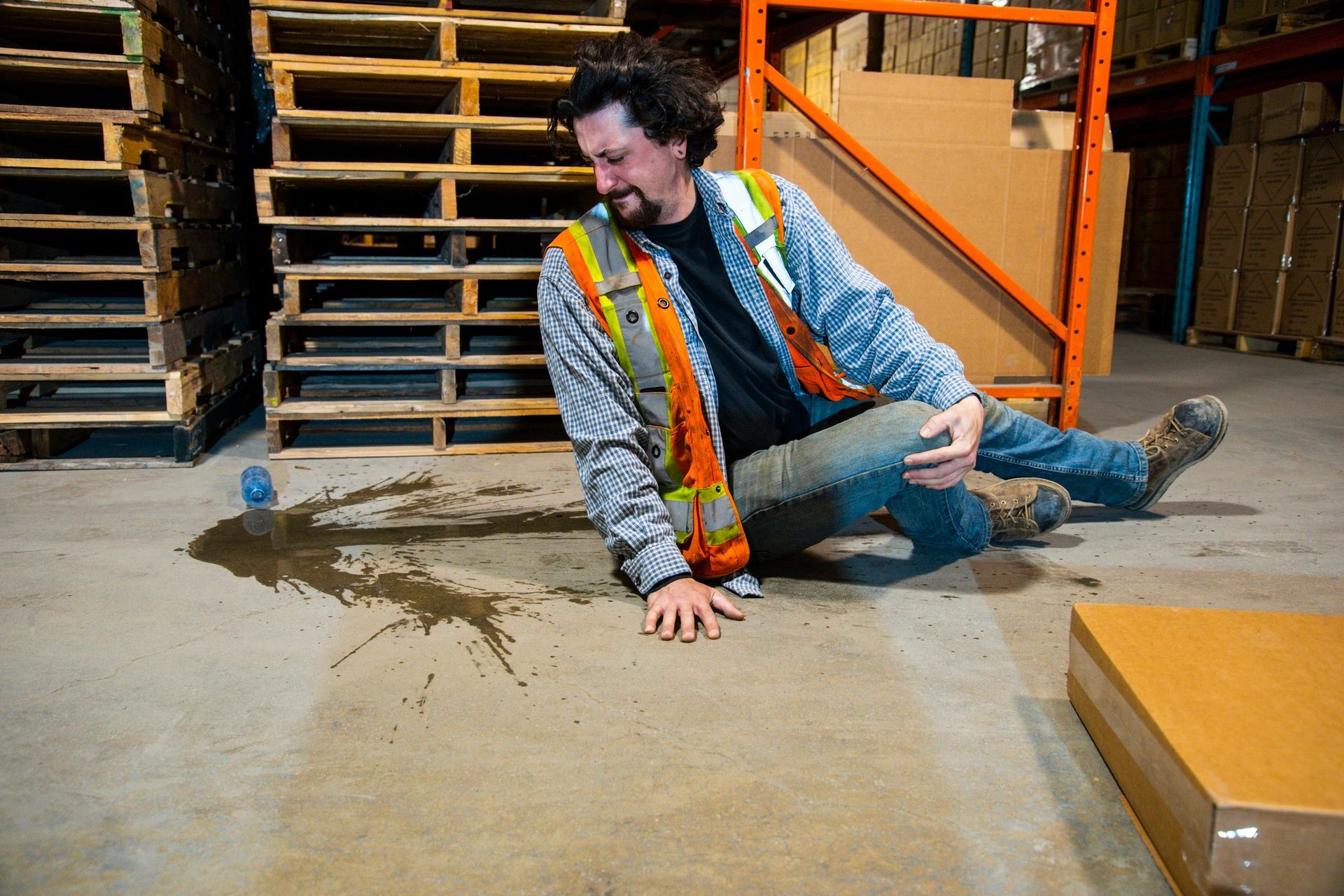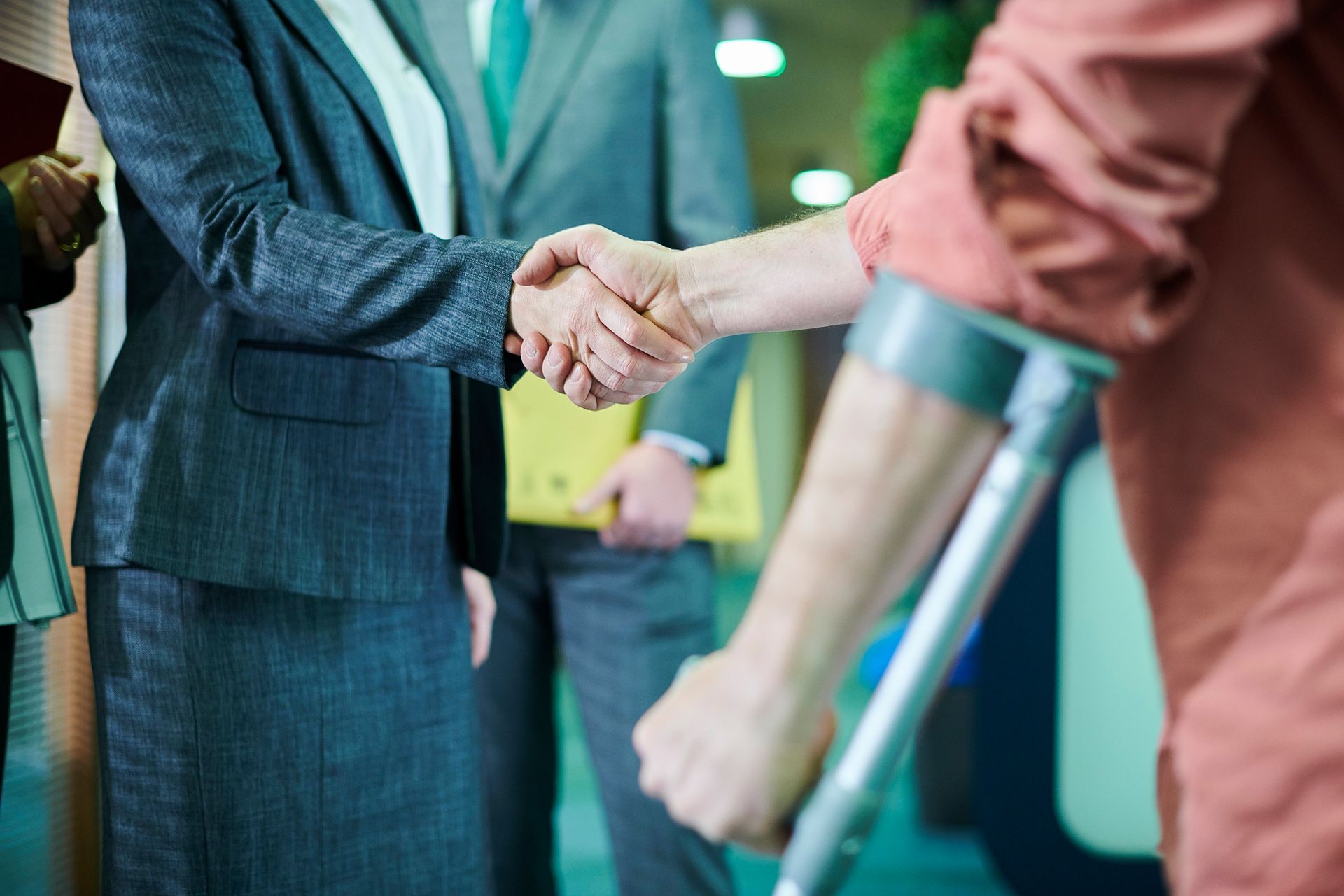Book a free no obligation consultation
Slip, Trip and Fall into Spring
SLIP, TRIP AND FALL
With Spring right around the corner, people are getting back into their fitness routines, enjoying the outdoors more, and with surfaces often slick and wet from spring precipitation, slipping and falling more. "Slip and fall" is a term used for a personal injury case in which a person slips or trips and is injured on someone else's property. These cases usually fall under the broader category of cases known as "premises liability" claims. By far the most common cause of slip and fall accidents globally is due to wet and uneven surfaces. In this country, they account for 55% of all of these types of accidents.
Places where falls are likely include:
Slippery floors due to wetness from spills or tracked in rain, mud, snow, sleet, etc., or naturally slick surfaces like stone or glass
- Cluttered hallways, aisles and other walkways
- Staircases and ramps , including stairways with broken or loose stair treads or handrails
- Uneven surfaces, such as torn or bunched carpet, uneven bricks or paving stones, potholes, etc.
- Unstable surfaces, such as floors with loose or broken tiles, floorboards, area rugs, etc.
- Poorly lit areas
SLIP AND FALL INJURIES
Falls account for over 8 million hospital emergency room visits, representing the leading cause of visits (21.3%). Slips and falls account for over 1 million visits, or 12% of total falls. According to the Consumer Product Safety Commission (CPSC), floors and flooring materials contribute directly to more than 2 million fall injuries each year. Fractures are the most serious consequences of falls and occur in 5% of all people who fall.
Slip and fall accidents cause many types of injuries including:
- Broken bones.
- Sprained ankles or wrists.
- Knee damage.
- Shoulder dislocations or muscle strains.
- Spine and nerve damage.
- Traumatic brain injury.
- Cuts and bruises.
LIABILITY IN SLIP AND FALL CASES
Proving liability in slip, trip and fall cases involves first and foremost determining the legal status of the claimant when they entered the property on which they were injured. There are three legal statuses—invitee, licensee, and trespasser—and a different duty of care is owed by the property owner or manager based on the status of the person. Generally, a property owner has a duty to exercise ordinary care of his premises towards invitees—people on the property for the benefit of the owner, such as customers at a business. The duty of care owed to licensees is somewhat less, but a property owner is still required to avoid conditions on his property that would cause harm. An example of a licensee is a friend or family member visiting your home, and therefore invited onto the property but there for their own benefit. With respect to trespassers, a property owner simply owes a duty of care to not negligently or recklessly cause them harm; trespassers do not have permission to be on the property and therefore the duty of care owed is minimal.
Georgia has a modified comparative negligence system; i.e. a claimant can only recover damages if he/she was less than 50% at fault for their injury. A property owner must have actual or constructive knowledge of the hazardous condition on the property, and the condition cannot be in plain sight such that a reasonable person would have seen the hazard (the plain view doctrine).
WHAT TO DO IF INJURED IN A SLIP AND FALL ACCIDENT
Five steps to take if in a slip, trip and fall accident:
- Seek Medical Treatment. Your health—or the health of a loved one—should be your number-one priority following a slip, trip, and fall accident. If you've been hurt, it's important to see a doctor so that your injuries can be properly documented. Those medical records will be important pieces of evidence should you decide to seek compensation for your injuries.
- Report the Accident. No matter where the slip, trip, and fall accident happens—in a store, on a sidewalk, or at a friend's house—make sure you report it to a manager, owner or landlord. Remember to get the details of the incident in writing—ask the manager, owner or landlord to make a written report, and request a copy before you leave. If the police are involved, get a copy of the police report.
- Document Everything. It's important to collect the names, addresses, phone numbers and email addresses for all potential witnesses. Their statements could help prove your claim if you decide to pursue a legal claim. Also, remember to take pictures of the EXACT location where you fell and make sure to photograph any stairs, icy patches, or other conditions that contributed to your accident. It may be that accidents have occurred at the particular site before, which can be evidence of a property owner’s neglect of a recurring—and known—hazardous condition on the property.
- Decline to Give Statements. Remain calm and limit your communication with the property owner or manager. Do not post any details related to your accident on social media. Decline to give a statement to an insurance company until you've spoken to an attorney. Do not place blame—and don't take any.
- Contact Your Attorney. When considering legal action, the best person on your side is an experienced attorney. Since many slip, trip, and fall cases are complex and difficult to prove, you are best served by the resources of a successful law firm. If you or someone you know has been injured in a slip, trip and fall accident, contact Dave Thomas at The Thomas Law Firm for a free evaluation of your legal rights. You might be entitled to compensation for medical costs, lost wages, and damages for pain and suffering.
How Can You Get in Touch?
If you want to set up a free, no-obligation consultation, call us at
678-264-8348 or contact us online. We will be happy to meet with you.
Browse Our Website
Contact Information
Phone
Fax
800-358-7082
Address
5901 Peachtree Dunwoody Road, Bld. A, Suite 220, Sandy Springs, GA 30328
Business Hours
- Mon - Fri
- -
- Saturday
- Appointment Only
- Sunday
- Closed
Our Location





